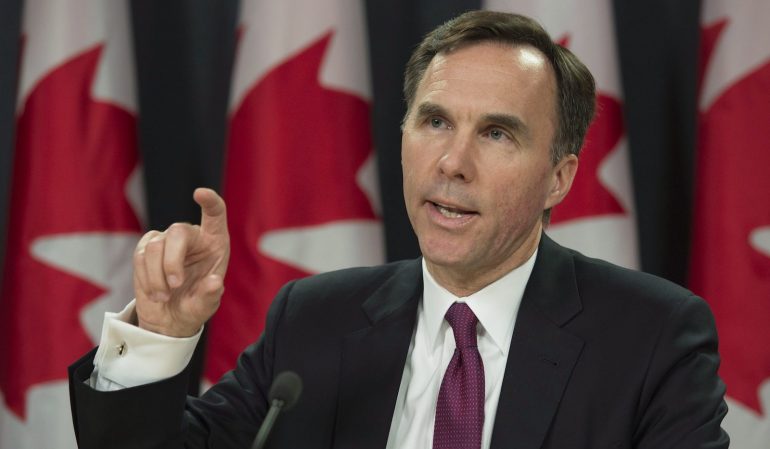Finance Minister Bill Morneau unveiled clarifications in the government’s “income sprinkling” tax proposal, which allows business owners to transfer income to a child or spouse who would be taxed at a lower rate.
When the government said several months ago that it would apply a “reasonableness test” to see whether a child or spouse could participate in income sprinkling, there was uncertainty about who this would apply to. These announcements aim to clarify those points.
The measure comes into effect on January 1, and address how the government will determine whether a family member is significantly involved in a business, and thus excluded from potentially being taxed at the highest marginal tax rate.
These are the family members that are automatically excluded:
- The business owner’s spouse, provided that the owner meaningfully contributed to the business and is aged 65 or over.
- Adults aged 18 or over who have made a substantial labour contribution (generally an average of at least 20 hours per week) to the business during the year, or during any five previous years.
- Adults aged 25 or over who own 10 percent or more of a corporation that earns less than 90 percent of its income from the provision of services and is not a professional corporation.
- Individuals who receive capital gains from qualified small business corporation shares and qualified farm or fishing property, if they would not be subject to the highest marginal tax rate on the gains under existing rules.
People aged 25 or over who do not meet any of these exclusions are subject to a “reasonableness test” to determine how much income, if any, would be subject to the highest marginal tax rate. In certain cases, adults aged 18 to 24 who have contributed to a family business with their own capital will be able to use the reasonableness test on the related income.
Owners who sprinkle income will need to attest that they meet the qualifications to have the sprinkled income taxed at the lower rate, and the CRA will take them at their word.
Under the new simplified proposals, the government says that the number of family businesses affected by the changes is estimated to be fewer than 45,000, or less than three percent of Canada’s 1.8 million Canadian-controlled private corporations.
“Since 2015, Canadians have created nearly 600,000 new jobs, and unemployment is lower than it’s been in nearly a decade,” said Morneau. “Hard-working business owners—including small, family-run businesses—are a big part of that success. We are cutting taxes for 1.8 million small businesses while making sure that the wealthiest Canadians pay their fair share.”
More background on this announcement is available here.
Photo via Macleans


